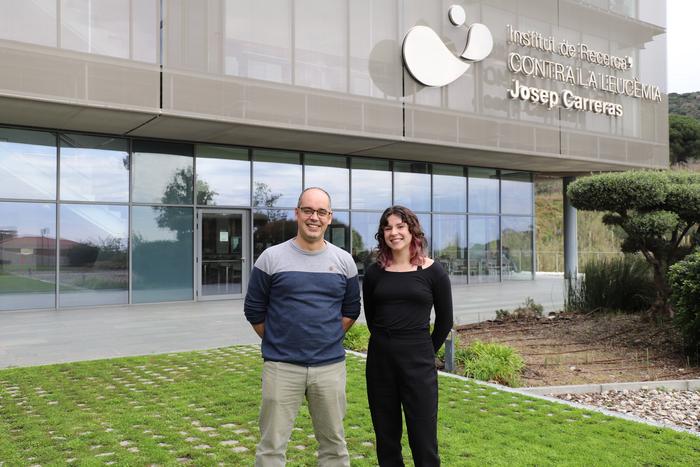In a groundbreaking advance that could reshape our understanding of cancer biology, a consortium of researchers has unveiled compelling evidence that inherited genetic variants profoundly impact the proteomic landscape of cancer cells across multiple tumor types. This landmark study, published in the prestigious journal Cell, dives deep into the complex interplay between germline mutations and the proteomic alterations observed in tumors, offering unprecedented insights into how these inherited factors contribute to cancer development and progression at a molecular level.
For decades, cancer research has heavily focused on somatic mutations—those genetic alterations acquired during a person’s lifetime that directly drive tumorigenesis. However, germline variants, which are inherited from one’s parents and present in every cell, have remained elusive in terms of their direct functional consequences on cancer biology. The new study employs a sophisticated proteogenomic approach to bridge this knowledge gap, leveraging large-scale computational modeling to integrate multi-omics datasets from over a thousand cancer patients spanning ten distinct cancer types.
The research harnesses the immense resources of the Clinical Proteomic Tumor Analysis Consortium (CPTAC), a collaborative effort established to comprehensively characterize the proteomes—complete protein repertoires—of cancerous tissues. By analyzing over 337,000 germline variants in conjunction with proteomic, transcriptomic, acetylomic, and phosphoproteomic data, the investigators were able to identify 119 variants of particular interest. These genetic alterations, both rare and common, were found to modulate protein structure, abundance, and post-translational modifications in ways that influence cellular processes critical to cancer pathophysiology.
Such insights were made possible through a pioneering strategy often referred to by the authors as “precision peptidomics.” This method surpasses traditional association studies by directly mapping the impact of inherited mutations onto patient-specific protein variants, thus unraveling the mechanisms whereby certain germline variants collectively increase cancer risk despite appearing innocuous in isolation. This comprehensive molecular characterization holds profound implications for precision oncology, suggesting avenues to develop tailored therapies that exploit vulnerabilities dictated by patients’ inherited genetic makeup.
Notably, the study highlights that germline variants do not merely predispose individuals to developing cancer; they also fundamentally shape tumor biology by altering protein stability and signaling pathways. Aberrant post-translational modifications induced by these variants disrupt normal cellular homeostasis, promoting oncogenic cascades that fuel tumor growth and resistance to therapies. This deeper understanding of proteomic dysregulation driven by inherited factors expands the horizon for biomarker discovery and the stratification of cancer patient populations based on unique proteogenomic signatures.
Equally significant is the scale and scope of this research. By analyzing over 1,000 patients representing diverse cancers, the study offers one of the most expansive and integrated views of the germline proteogenomic landscape to date. The comprehensive nature of the dataset underscores the ubiquity of such inherited variants across multiple cancer types, challenging previously held notions that germline mutations exert only minor or indirect effects on cancer progression.
The involvement of dedicated researchers from the Josep Carreras Leukaemia Research Institute—Dr. Eduard Porta as co-senior supervisor and Kathleen J. Imbach as co-first author—reflects the collaborative and interdisciplinary nature of this work. Their expertise in cancer immunogenomics adds a critical dimension to the analysis, potentially linking germline proteogenomic alterations with tumor immune evasion mechanisms, a frontier area that promises to enhance immunotherapy efficacy.
Critically, this research also emphasizes the transformative power of integrating various layers of ‘omics data. The translational proteogenomic framework aligns genomic variation data with functional protein outputs, overcoming traditional barriers that have complicated associations between genotype and phenotype. Such integration amplifies resolution beyond what can be achieved by genomics alone, uncovering subtle yet significant changes in protein function that drive oncogenesis.
Beyond the academic and clinical realms, the findings also inspire hope for innovative prevention strategies. Understanding how inherited germline variants influence protein behavior and cancer risk can facilitate earlier detection protocols and the customization of surveillance schedules for individuals at high risk. Moreover, therapeutic targeting of variant-induced proteomic dysfunction opens new windows for drug discovery, particularly in designing molecules that restore normal protein stability or signaling disrupted by these inherited changes.
This research was made possible through generous funding from institutions including the U.S. National Cancer Institute, the Spanish Ministry of Science, Innovation and Universities, and Fundación Cris contra el Cáncer in Spain, highlighting the global commitment to unraveling cancer’s molecular complexity. As the field of proteogenomics advances, the comprehensive datasets and computational tools developed here will serve as invaluable resources for future studies and clinical applications.
To summarize, this study marks a significant leap forward in our understanding of the hereditary basis of cancer. By demonstrating how germline variants influence the cancer proteome so extensively and intricately, the work offers a new paradigm for personalized oncology—one where inherited genetic information guides not only risk assessment but also dictates precise intervention strategies tailored to each patient’s unique molecular profile.
The implications of this research reach far beyond academia, holding the potential to transform clinical care for millions of cancer patients worldwide. As precision medicine continues to evolve, the integration of proteogenomics into everyday oncology practice promises to enhance early diagnosis, treatment efficacy, and ultimately, patient survival. This seminal paper truly underscores the power of multidisciplinary science to illuminate the hidden molecular determinants of cancer and pave the way for a new era of tailored therapeutics.
Subject of Research: Cells
Article Title: Precision Proteogenomics Reveals Pan-Cancer Impact of Germline Variants
News Publication Date: 14-Apr-2025
Web References:
https://www.carrerasresearch.org/en/news/a-proteogenomic-approach-offers-the-deepest-and-broadest-view-of-what-happens-into-a-cancer-cell
https://www.cell.com/cell/fulltext/S0092-8674(25)00344-7?rss=yes
References:
Martins Rodrigues, F. et al. (2025) ‘Precision proteogenomics reveals pan-cancer impact of germline variants’, Cell 188, 1–24 May 1, 2025. DOI: 10.1016/j.cell.2025.03.026
Image Credits: Josep Carreras Leukaemia Research Institute
Keywords: Germlines, Genetic variation, Cancer research, Bioinformatics




